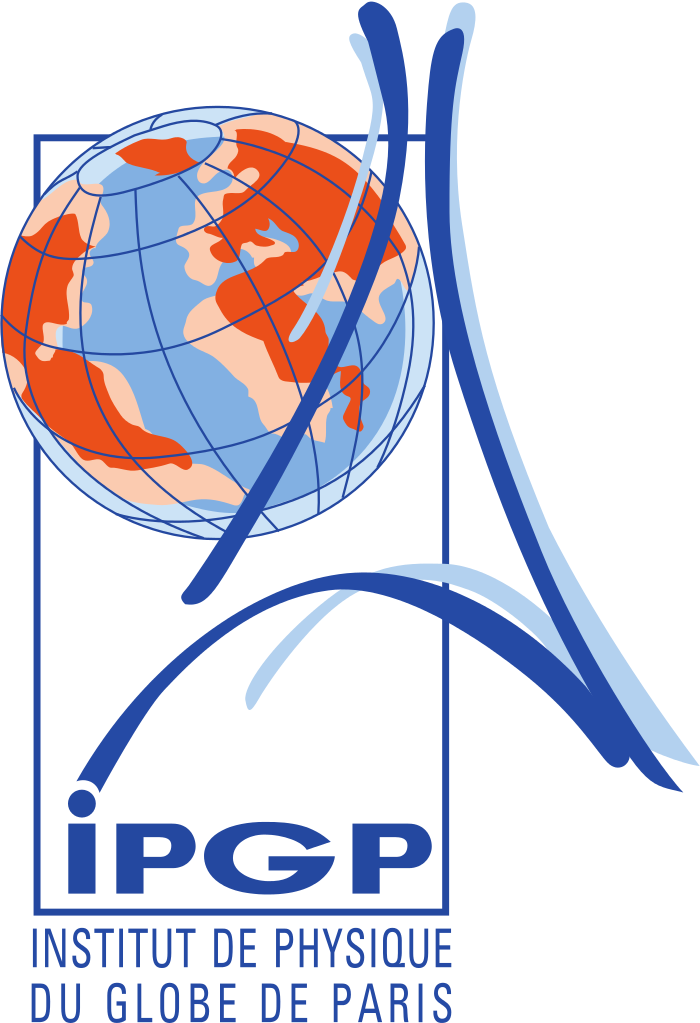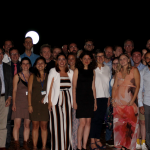Insitut di Physique du Globe de Paris
Partner Description
The Institut de Physique du Globe de Paris (Sorbonne Paris Cité, Joint Research Unit of CNRS – Paris Diderot University) is one of the major French institutions in Earth sciences (~265 scientists/engineers/technicians and 155 postdocs/PhDs). It provides teaching in all fields of the geosciences (geophysics, geochemistry, quantitative geology, geobiology) and conducts research in all the fields of studies of the solid Earth and its external envelops by combining observations on land and at sea, from laboratory analysis to the construction of conceptual, analogical and numerical models. The institute is also in charge of monitoring the natural phenomena and natural risks. This includes the responsibility for the monitoring of the three French active volcanoes, the worldwide network of seismological stations GEOSCOPE, and a major contribution to the worldwide network of magnetic observatories INTERMAGNET. To accomplish his teaching assignment, IPGP was committed, together with Denis Diderot University, to implement the LMD program, by taking the responsibility of the courses for master and doctorate.
Role in the Project
The Geomicrobiology team of IPGP involved in the project specializes in conducting pioneering research on the impact of CCS on the deep biosphere and the retroactive effects microbial activities have on storage efficiency and stability. This research group is recognized for expertise in in situ characterization of organic matter and microbial cells in hard rocks using spectroscopic techniques along with molecular ecology. This interdisciplinary group brings together geoscientists and molecular ecologists that have developed innovative methods for the micro-scale imaging and the characterization of microbes-minerals interactions in natural rock samples. The group is actively involved in different programs dealing with CCS since more than 10 years. In addition this group is working since 2007 on the Icelandic pilot site where cores were drilled in October 2014 and allow to evaluate the impact of deep microbe activity on basalt weathering and CO2 carbonation.
In S4CE, IPGP will (i) provide a state of the art report on natural and potentially activated biomass from deep reservoirs to the surface; (ii) unravel the metabolic impact of species stimulated by sour gas injection in the subsurface and characterize the interactions between microorganisms and rocks/minerals, using molecular survey of 16S rDNA and functional genes, metagenomics and high-resolution spectroscopic and imaging techniques; (iii) assess and propose based on the existing technologies and the key components to be followed recommendations for new monitoring techniques at reasonable cost.

Contact
Email:
Web: www.ipgp.fr
Team

B. Ménez is heading of the IPGP Geomicrobiology research group, with expertise in microimaging techniques allowing to characterize microbe-mineral interactions. She was one of the former Directors of the IPGP/TOTAL/SCHLUMBERGER/ADEME Center of Research for CO2 geological storage.

E. Gérard designed and implemented with B. Ménez the microbiological monitoring of the CCS pilot site of Hellisheidi. She is leading innovative developments to study microbe-mineral interactions including laser microdissection and single-cell genomics on microorganisms from mineralized environments.

Rachael L. Moore is a PhD student studying microbes-mineral-sour gas interactions in a basaltic context using 2D and 3D microimaging techniques and flow through analogical experiments in biotic and abiotic conditions.

Aurélien Lecoeuvre is a PhD student studying, using molecular ecology, the structure and nature of the microbial community hosted in the Hellisheidi deep basalts and their reactivity and impact on fluid/rock interactions following anthropogenic gas injections.

Hélène Bouquerel provides expertise in magnetic measurements and Raman spectroscopy for the study of fluid-rock-microbe interactions in the basaltic core drilled in the Icelandic CCS pilot site of Hellisheidi following sour gas injections.

Léna Lecourt provides technical support for microbial ecology experiments including gene amplification and cloning.




